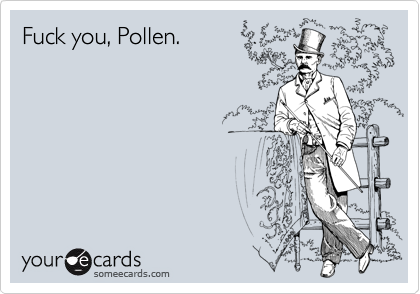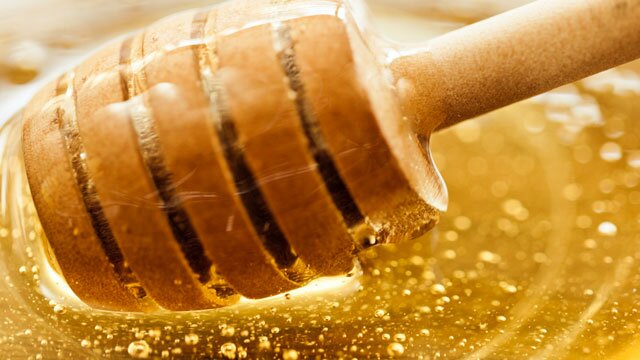Has your nose been running more often than the occasional escapist booger? Are you confused and befuddled by the mysterious yellow film coating your car, patio furniture and everything else that’s kept outside? Have no fear, because these occurrences are pretty standard for the heavily pollinated, allergy-inducing seasons of Gainesville.
The massive spread of pollen, otherwise known as the fertilizing fundament of flowering plants, usually indicates that spring is in our midst. These microscopic grains are released from the male cone and carried by the wind to fertilize the female ovule, and as of late, it is more than obvious that these male flowers have been… getting busy. This invasion of flower jizz is fortunate for the lady flowers, but unfortunate for you, especially if you are sensitive to changes in the environment.
The allergy forecast from Pollen denotes medium-high and high levels of pollen in the air, specifically from Oak and Juniper trees. This week’s average pollen count is about 9/12, forcing a large number of individuals to make distracting nose noises and hoard embarrassing heaps of used tissues. In short, the higher the pollen count, the more you’ll be suffering. The symptoms of allergies we all know and love, i.e. runny nose, watery eyes, sneezing, coughing and itching, are caused by the immune systems response to an allergen. Seeing pollen as a threat, similar to a bacteria or a virus, our antibodies attack it and release histamines into our blood, causing us to have that drippy, weary look that pleasantly repels the rest of the population.

Via: someecards.com
“I’ve been noticing a huge change in my allergies, they really have been acting up lately. It’s hard to breathe. There’s definitely a difference in the air in Gainesville,” said UF student Ally Glerum.
From a national standpoint, Florida is hit harder by allergens, along with the rest of the southern United States that stretches along the equator. But it is a small price to pay for living in the sunshine state. In fact, antihistamines and decongestants aren’t too expensive at your local pharmacy. You may, however, have to splurge on a carwash and a few extra boxes of Kleenex.
But if you’d like to take a different route to treating your seasonal sniffing and eye-itching affliction, consider the holistic options. Although not yet scientifically proven, many believe that consuming raw local honey is a form of immunotherapy. By exposing yourself to the low dose of pollen in the honey, a stimulation of immune responses (similar to a vaccine) causes a gradual build up of tolerance and creates resilience against the allergens. There are also other natural remedies for treating allergies, such as garlic, chamomile and Vitamin C, according to Celeste Lowe, a natural health consultant for Examiner.

Via: abcnews.com
Local honey can be found at grocery stores like Ward’s Supermarket, but my favorite place to pick up a jar of that sticky good-good is in downtown Bo Diddley Plaza at the Farmer’s Market, held weekly on Wednesdays. Krista Lighter, sales associate of Beulah honey who represents the brand each week, affirms that “Honey never expires, so the majority of my repeat customers do continue to purchase from Beulah honey solely because a tablespoon a day helps to treat their allergy symptoms. Most customers get honey for allergies and keep coming back for more. For example, there’s an older man that always comes back once at least every two weeks to get the wildflower honey because he says it does wonders for his allergies.” Personally, I recommend Beulah’s gallberry flavor. I put that shit on everything.
Some other tips on managing spring allergies can be found on WebMD. Good luck, and whenever you’re feeling shitty about living in a place where pollen stays poppin’ off, just remember that you do too. It could always be worse. You could be a Seminole.





